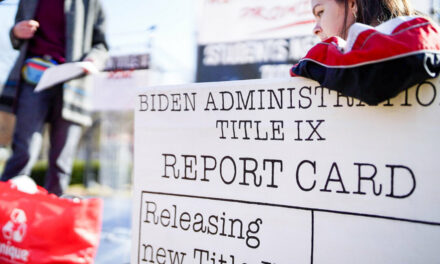We support our Publishers and Content Creators. You can view this story on their website by CLICKING HERE.
Special Counsel Jack Smith has sought a gag order against Trump concerning statements about law enforcement officers involved in the case.
U.S. District Judge Aileen Cannon has scheduled a hearing June 24 on prosecutors’ request to modify the conditions of release for former President Donald Trump in the Southern District of Florida, where he has been charged with 40 counts related to allegedly mishandling classified documents.
The prosecution is requesting the judge make clear that the former president “may not make statements that pose a significant, imminent, and foreseeable danger to law enforcement agents participating in the investigation and prosecution of this case.”
Law Enforcement
A significant portion of the litigation in the classified documents case has been sealed, or not available to the public, as the case deals with classified information. In recent weeks, Judge Cannon has ordered the unsealing of documents found to not contain sensitive information, or their release after specific redactions.
Absent from some of these posts and stories was the context that the language used in the Mar-a-Lago raid plan was standard.
After former President Trump made his Truth Social post, prosecutors filed their request for modified conditions of release, effectively a gag order.
They argued that former President Trump’s speech exposes agents “to the risk of threats, violence, and harassment.” Prosecutors argued former President Trump has been intentionally misleading in his messages about the agents who participated in the raid, as they continued even after the FBI released its clarifying statement.
Prosecutors plan to call some of those FBI agents as witnesses at trial and argue that President Trump “irresponsibly put a target on the backs of the FBI agents involved in this case.” They used as an example a 2022 planned attack on an FBI office in Ohio by a Trump supporter.
The court, prosecutors argued, “should take steps immediately to halt this dangerous campaign to smear law enforcement.”
This makes for the fourth gag order request on former President Trump.
All have rested in part on the premise that the presumptive Republican nominee is widely influential, and that a portion of his supporters are apt to harass any person he names in an unfavorable light.
While Supreme Court decisions on First Amendment issues have historically found that one cannot be held responsible for the actions of third parties responding to one’s speech unless the speech called for imminent, lawless action, judges in multiple jurisdictions upheld gag orders on former President Trump on the basis that it was necessary for fair judicial proceedings.
Attorneys for former President Trump have argued prosecutors failed to show how his speech impairs a fair proceeding; judges disagreed.
High Legal Bar
Orders to preemptively prohibit speech are subject to a judge’s discretion, but typically have a high bar to clear.
The defense argued the prosecution has not met the bar, and a gag order on such a basis would be overreach, overly broad, and unconstitutional.
Without any evidence that former President Trump’s recent statements mentioning law enforcement have caused harassment, threats, or intimidation, defense counsel argue the risk prosecutors cite remains hypothetical and cannot support a gag order.
They argued that former President Trump has a right to criticize the government and methods used by its agencies, and that the prosecution’s response to such speech has been outsized.
The proposed gag order is broad enough to allow prosecutors “to seek President Trump’s arrest and temporary detention any time he said something they disagreed with—including but not limited to statements on the debate stage, the campaign trail, on social media, and potentially even including communications by President Trump’s campaign staff,” the defense argued.
The judge will hear these arguments in an afternoon session on June 24. The morning will be devoted to arguments regarding whether the special counsel’s appointment violates the appropriation clause, a continuation of last week’s hearing on the defense’s motion to dismiss the indictment on the basis that the special counsel was unlawfully appointed.

 Conservative
Conservative  Search
Search Trending
Trending Current News
Current News 







